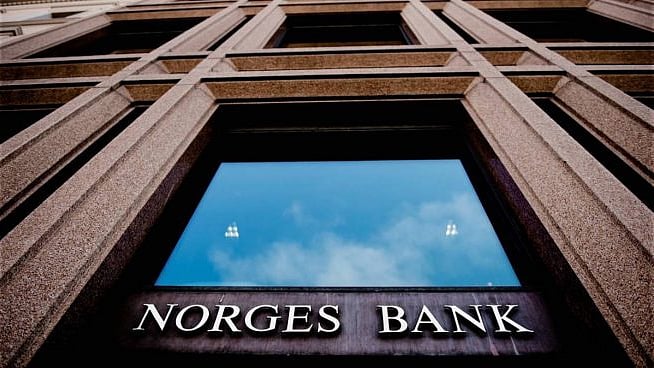India
Not just Sterlite, Norway Bank blacklisted 17 top Indian companies
A fresh investigation has revealed that Sterlite wasn’t the only Indian company that was blacklisted by Norway’s Norges Bank; many more Indian PSUs and private companies are on the list

Following a recent report in The Wire regarding Norges Bank (NB) deciding not to invest funds from Norway's Government Pension Fund Global (GPFG) in the controversial Tamil Nadu company, Sterlite, a few years ago "due to an unacceptable risk of complicity in current and future severe environmental damage and systematic human rights violations", a fresh investigation has revealed that it wasn’t the only Indian company that was blacklisted.
The investigation by senior activist Venkatesh Nayak of the Commonwealth Human Rights Initiative (CHRI), sent as an email alert to Counterview, says that GPFG funds have been “invested in 275 public and private sector enterprises in India”, but exceptions include four public sector undertakings (PSUs) and 13 private sector companies, and reasons range from environmental damage to human rights violations.
Data, which Nayak has culled out from the GPFG website, show that the blacklisted PSUs are: Bharat Heavy Electricals Ltd and National Thermal Power Corporation for “severe environmental damage”, and Gujarat Mineral Development Corporation and Coal India for as more than 30% of their operations are “related to thermal coal”.
The private companies blacklisted include Reliance Infrastructure, Reliance Power and Tata Power Company for “more than 30% operations are relate to thermal coal”, POSCO for “severe environmental damage”, Vedanta Resources for “systematic human rights violation” as also “severe environmental damage”, Imperial Brands and ITC for tobacco production, Zuari Agro Chemicals for “employment of child labour”, and Cairn Energy for “serious violation of fundamental ethical norms”.
Published: undefined
Investigation of blacklisted companies came in wake of police killing of 13 protestors at Thoothukudi, Tamil Nadu
Nayak has done his investigation against the backdrop of the Thoothukudi (Tuticorin) incident in Tamil Nadu on May 22, 2018, in which 13 protesters died on the spot when the police opened fire. They were protesting against the adverse environmental impact of the industrial operations of Sterlite Copper which runs a copper smelter plant in the area.
Accusations against the company have ranged from polluting local water resources to plans for expanding the installed capacity of the plant without the necessary environmental clearances.
GPFG comprises of Norway's earnings from the country's oil wealth. GPFG is said to be worth Norwegian Kroner 8,436 billion which is equal to $1,026 billion or Rs 69,285 billion. Norge Bank claims to have invested these funds in 9,146 companies operating in 72 countries around the world.
Some well known global companies in which GPFG has invested are Apple Inc., Microsoft, Nestle and Amazon.com, Novartis and Samsung.
In India, of the important companies it has invested include Infosys Ltd $289 million, $227 million in State Bank of India, $189 million in Tata Consultancy Services, $170 million in Tata Motors, $169 million in Reliance Industries, $149 million in Indus Ind Bank, $144 million in Cipla, $130 million in Apollo Tyres, $89 million in Adani Ports and SEZ and $41 million in TV18.
Published: undefined
The decision to blacklist Sterlite and its sister companies was first taken in 2007
According to Nayak, “According to the Council on Ethics which guides the investment decisions of GPFG, the case against Vedanta's exclusion is not just its operations in Thoothukudi but also its track record at the refinery near Mettur dam in Tamil Nadu, mining operations in Niyamgiri Odisha, and the refinery in Lanjigarh, Odisha and other operaitons. The decision to blacklist Sterlite and its sister companies was first taken in 2007.”
In fact, the Council of Ethics prepared a note recommending exclusion of Vedanta/Sterlite from the GPFG investment universe, he said, adding, “Vedanta is said to have advocated with GPFG/NB against the exclusion, but the decision to exclude them was reconfirmed on the basis of the recommendation received afrom the Council on Ethics in 2013.”
Norwegian Government is one of the best examples of how transparent a government and its agencies can be if there is political will and a culture of openness that pervades the bureaucracy. S. Asian and African countries that have enacted laws to guarantee access to information could do well by emulating the good practices adopted by Norway. Their Government volunteers a wealth of information about its working in the public domain.
Published: undefined
This article first appeared on CounterView.net on June 1, 2018
Published: undefined
Follow us on: Facebook, Twitter, Google News, Instagram
Join our official telegram channel (@nationalherald) and stay updated with the latest headlines
Published: undefined